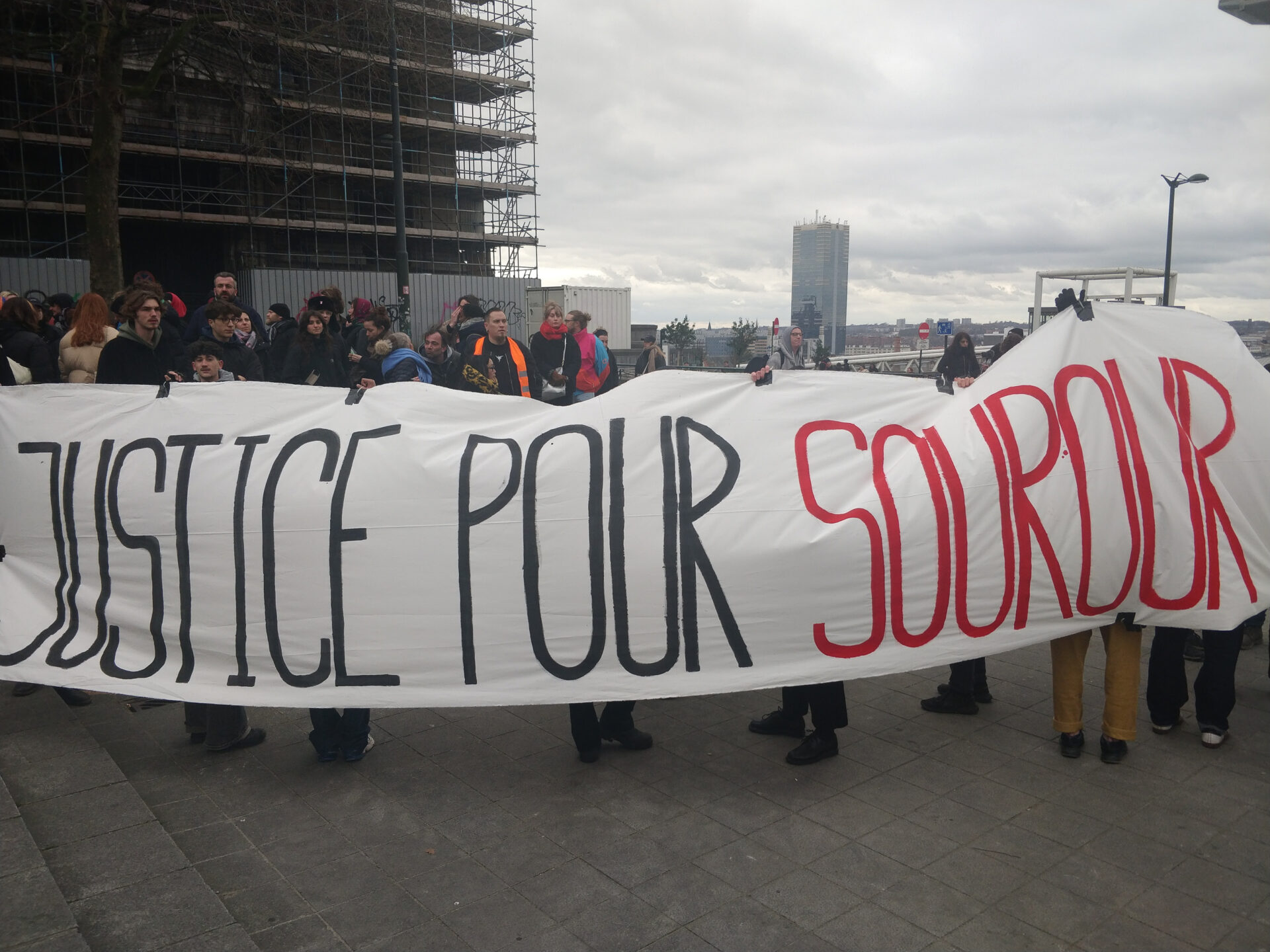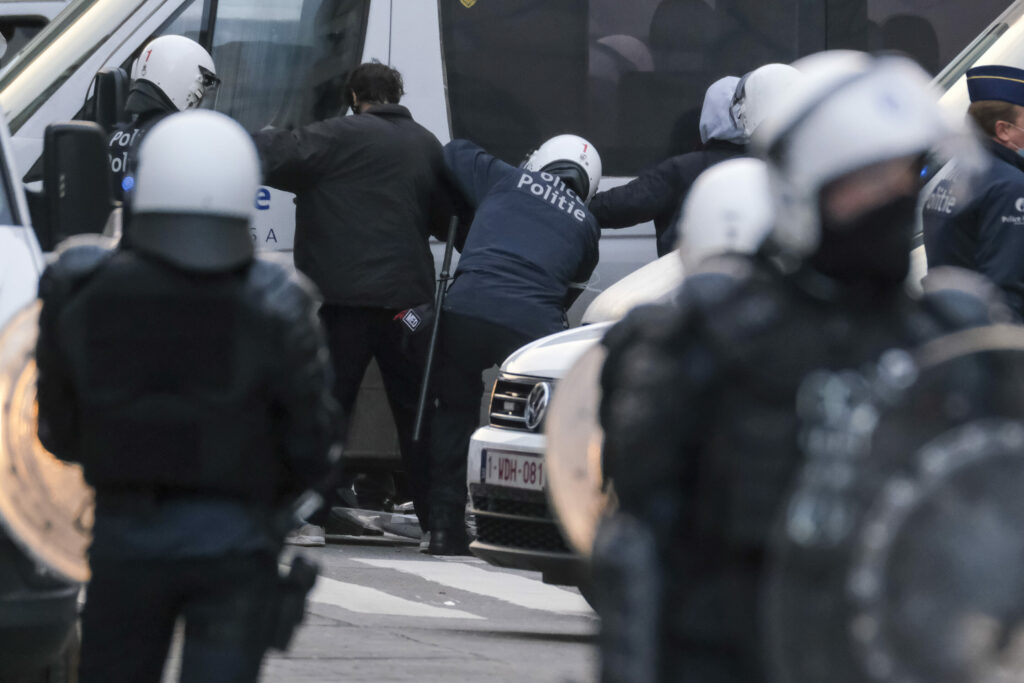The number of deaths in police custody or during police interventions has risen in recent years. On the occasion of the International Day against Police Violence and Repression, activists want to remember victims and call for systematic change.
Comité P, which is responsible for monitoring the police in Belgium, intervened in ten cases involving the death of individuals in the context of police intervention at the request of the judicial authorities, Le Soir reported on Friday.
Nine of these deaths were the result of a "shooting incident", while another case concerned the death of Sourour Abouda, a Belgian-Tunisian woman, who was found dead in her cell in police custody.
The latest figures indicate a rise in the number of deaths with police involvement: in 2020 three deaths were reported to Comité P, two in 2021 and four in 2022.
Mapping deaths
On the occasion of the International Day against Police Violence and Repression, Liga voor Mensenrechten and the Ligue des Droits Humains published an interactive map depicting the people who died during or as a result of a police operation (stop, arrest, chase, etc.), how this happened and the judicial handling of these cases.
The ethnic origin of the victims is specified to highlight racist bias: more than 90% of the victims are non-white. Police in Belgium, especially in Brussels, have a history of using violence as well as racial profiling and other forms of discrimination.
The data goes back 25 years, recording all "known" deaths since 1998, the year in which Semira Adamu, a young Nigerian asylum seeker, was suffocated by a cushion during forced repatriation while being escorted by five police officers.

Rally organised in memory of Sourour Abouda who died in a police cell in Brussels Credit: Belga / Anthony Gevaert
The human rights organisations stressed that the data available is not exhaustive but "aims to compensate for the lack of official statistics" on police violence and to make these deaths visible to "better combat police violence".
"Often the difficulties of access to justice, the possibility of bringing a civil action, precariousness and the fear of reprisals prevent the conditions of the excess mortality of non-white people in Belgium from being elucidated," the organisations noted. This is especially the case when they are undocumented.
The leagues denounce the continued impunity and silence about police violence in Belgium. They are also launching a podcast that will highlight the struggle that families of victims of deadly police violence face within the Belgian legal system. An out-of-court settlement is almost always ordered, meaning police officers involved rarely have to answer to a criminal judge and families are left with a sense of impunity.
Countermovement
While police violence is still largely invisible, this phenomenon is gradually being brought to light. Social networks, the mobilisation of victims' families affected and the outcome of recent trials – such as that of the "Sabrina and Ouassim" case, which saw one police officer being sentenced for a fatal chase – amplified the fight against police violence and the racism that is often linked to these cases.
The awareness raised by activist groups such as Bruxelles Panthères, Collectif des Madre, Comité de soutien Lamine Bangoura, Comité Justice pour Mehdi, and Bruxelles Devie, is also bringing the issue to the fore.
They will come together during the march against police violence on 15 March, starting from the Place des Congrès at 18:00. "This is for Sabrina and Ouassim, for Sourour, for Mehdi and for Mawda," said Stuut, a collaborative platform based in Brussels, naming several of the victims of police violence.
The organisers stressed the demonstration, which takes place on this day every year, allows victims' families, social movements and all concerned citizens to come together and make their voices heard against impunity and brutality.
They are calling for automated disciplinary procedures for deaths involving police officers to ensure an immediate and systematic response, the end to unjustified chases, and a ban on evasive measures such as strip searches, especially for minors. They also demand a reduction in the armed police presence on the streets, "for a safer and more welcoming community", as well as a memorial to victims of police violence.
Related News
- Death of Adil Charrot: Three Brussels police officers' case dismissed
- Brussels mayors come out against police brutality
Another demonstration will be organised on 23 March by the family of Imad, who was shot dead by the police in Seneffe exactly one year ago on that day. Lastly, the family of Mehdi – who at the age of 17 was run over by police during a chase for a gang of thieves – is calling for people to be present at the courthouse on Tuesday 26 March, for the first hearings of these officers.
The City of Brussels/ Ixelles police zone noted that the march will cause traffic disruption from 18:00 on Friday evening. "We advise you to avoid Rue Royale, Botanique, Rue de Brabant, Place du Nord, Boulevard Albert II, Boulevard Jacqmain, De Brouckere, Rue de la Vierge Noire and the Dansaert district."

